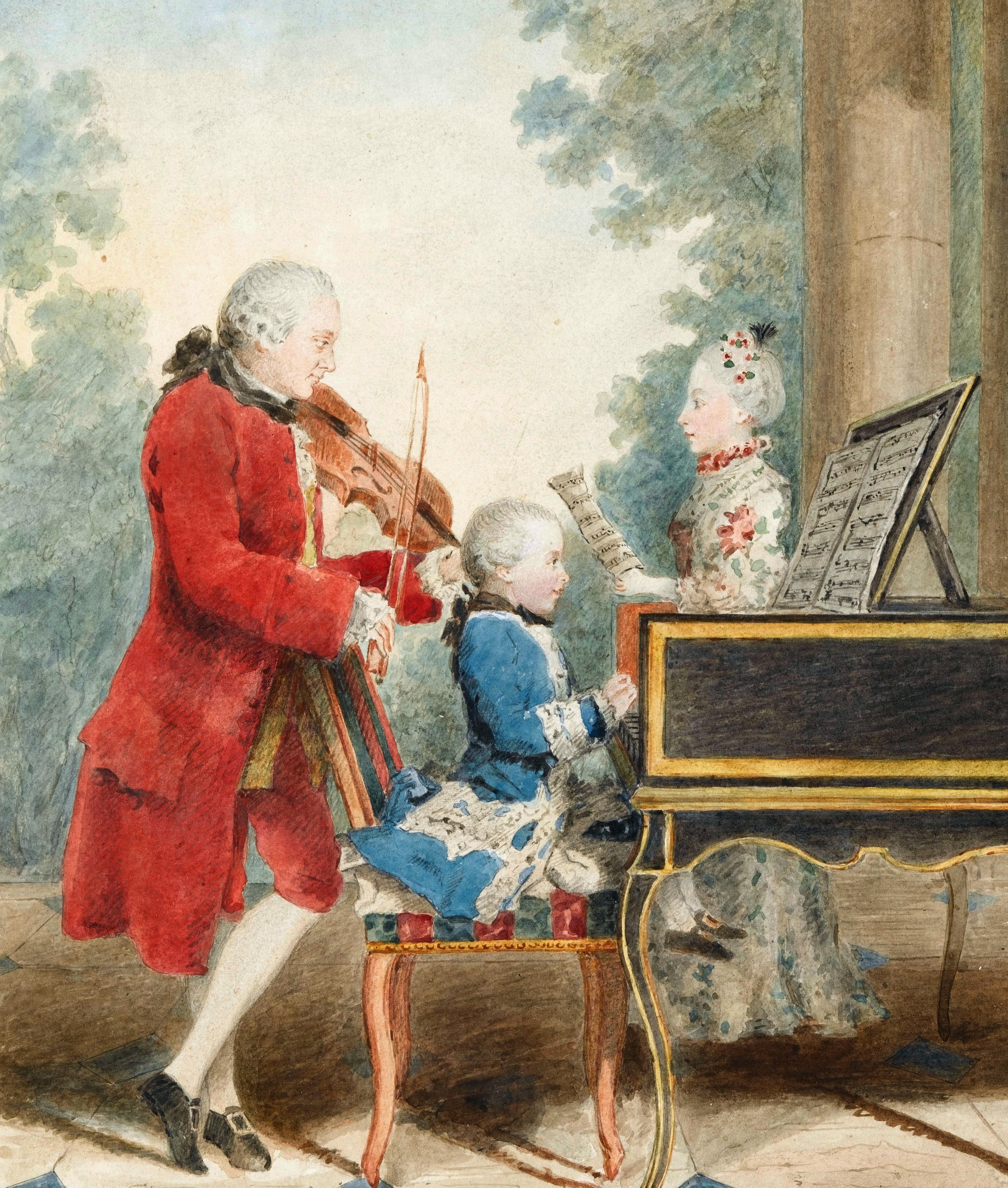History of Classical Music
- Introduction to Classical Music
- The Medieval Period (500-1400)
- The Renaissance Period (1400-1600)
- The Baroque Era (1600-1750)
- The Classical Period (1750-1820)
- The Romantic Period (1820-1900)
- The 20th Century (1900-2000)
- Modernism in Music
- Postmodernism in Music
- Women in Music
- Contemporary Music
- The Intersection of Classical Music & Pop Culture
The Classical Period (1750-1820)
The Era of Classicism in Music

Genre of Western music (c. 1730–1820).
The Classical Period in music, spanning from 1750 to 1820, was a time of significant change and development. This era, often referred to as the "Age of Enlightenment," was marked by a shift towards simplicity and clarity of structure, moving away from the complex, ornate compositions of the Baroque period.
Definition and Characteristics of Classicism
Classicism in music is characterized by a clear melody line over a subordinate harmony, a consistent rhythm, and a homophonic texture. The music of this period is known for its elegance, balance, and the use of dynamic contrasts.
The Classical Period also saw the development of standardized forms and structures in music. These forms, such as the sonata, symphony, concerto, and string quartet, provided a framework within which composers could work, leading to a greater emphasis on the development of musical ideas.
Social and Cultural Context of the Classical Period
The Classical Period was a time of significant social change. The middle class was growing, and with it, the demand for public concerts. This led to a shift in the way music was consumed - from private performances in the homes of the aristocracy to public concerts in concert halls.
This period was also marked by the Enlightenment, a philosophical movement that emphasized reason and individualism. The ideals of the Enlightenment had a profound impact on the arts, including music. Composers began to see themselves as artists rather than craftsmen, and music became a way to express personal emotions and ideas.
Evolution of Musical Forms
The Classical Period saw the development of several important musical forms:
- Sonata: A musical composition for one or more solo instruments, usually consisting of three or four movements with contrasting forms and keys.
- Symphony: A long piece of music for orchestra, typically in four movements, at least one of which is traditionally in sonata form.
- Concerto: A musical composition usually composed in three parts or movements, in which one solo instrument is accompanied by an orchestra.
- String Quartet: A chamber music ensemble consisting of first and second violins, viola, and cello, or a piece written to be performed by such a group.
These forms provided a structure that allowed for the development and exploration of musical ideas, leading to a greater emphasis on thematic development and harmonic structure.
In conclusion, the Classical Period was a time of significant change and development in music. The simplicity and clarity of the music, the influence of the social and cultural context, and the evolution of musical forms all contributed to the unique characteristics of this era. The music of this period continues to be celebrated for its beauty, elegance, and emotional depth.